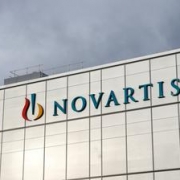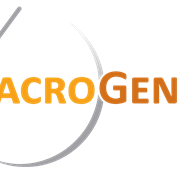Bristol Myers Squibb announced topline data from the Phase III CheckMate -648 trial on April 8, with positive results in esophageal cancer.
FDA Issues CRL to Merck
Acquisitions, Agreements, Blockbusters, Business, Chemotherapy, Committee for Medicinal Products for Human Use (CHMP), European Medicines Agency (EMA), FDA, Keytruda, Merck, Metastatic Urothelial Carcinoma (mUC), PD-1/PD-L1 inhibitors, Spin-offs, Therapeutics, Triple Negative Breast Cancer (TNBC)The U.S. Food and Drug Administration issued a Complete Response Letter (CRL) to Merck for the company’s supplemental Biologics License Application for Keytruda (pembrolizumab) in high-risk early-stage triple-negative breast cancer.
Novartis’ drug canakinumab (ACZ885) did not meet the primary endpoint of overall survival in patients with advanced or metastatic non-small cell lung cancer in a Phase III study, but other late-stage trials are ongoing.
The U.S. Food and Drug Administration approved G1 Therapeutics’ Cosela (trilaciclib) for injection to decrease the damage to the immune system and bone marrow from chemotherapy.
FDA’s ODAC Votes Against Merck’s Keytruda For TNBC
Advisory Committees, Blockbusters, Checkpoint Inhibitors, Chemotherapy, Clinical Trials, Early-Stage Triple-Negative Breast Cancer (TNBC), FDA, FDA, High-Risk, Keytruda, Not Recommended For Approval, Oncologic Drugs Advisory Committee (ODAC), R&D, TherapeuticsThe U.S. Food and Drug Administration’s Oncologic Drugs Advisory Committee (ODAC) voted against recommending Merck’s checkpoint inhibitor Keytruda (pembrolizumab) as neoadjuvant treatment for high-risk, early-stage triple-negative breast cancer (TNBC) in combination with chemotherapy after surgery.
AstraZeneca reported that the company’s Phase III KESTREL trial of Imfinzi (durvalumab) failed to meet the primary endpoint of improving overall survival compared to the EXTREME treatment regimen, which was chemotherapy plus cetuximab, a standard of care.
Chemo Drug Potentially More Potent than Remdesivir Against Coronavirus
Antibiotics, Chemotherapeutics, Chemotherapy, China, Clinical Studies, Clinical Trials, Coronavirus Disease 2019 (COVID-19), Drug screenings, Peripheral T-Cell Lymphoma (PTCL), PLOS Computational Biology, R&D, Remdesivir, Researchers, RNA, SARS-CoV-2 virus, TherapeuticsThe chemotherapy pralatrexate and the antibiotic azithromycin were successful at preventing replication of the SARS-CoV-2 virus, according to research with Shenzhen Institutes of Advanced Technology in China.
Shares of Aprea Therapeutics plunged after the Boston-based company announced a late-stage cancer combination treatment failed to meet the primary endpoint of complete remission rate.
The U.S. Food and Drug Administration approved MacroGenics Inc.’s drug Margenza in combination with chemotherapy for the treatment of an advanced type of breast cancer in patients who failed two or more prior therapies.
The Janssen Pharmaceutical Companies of Johnson & Johnson submitted a Biologics License Application to the U.S. Food and Drug Administration seeking approval of amivantamab for the treatment of patients with metastatic non-small cell lung cancer with epidermal growth factor receptor exon 20 insertion mutations whose disease has progressed on or after platinum-based chemotherapy.









